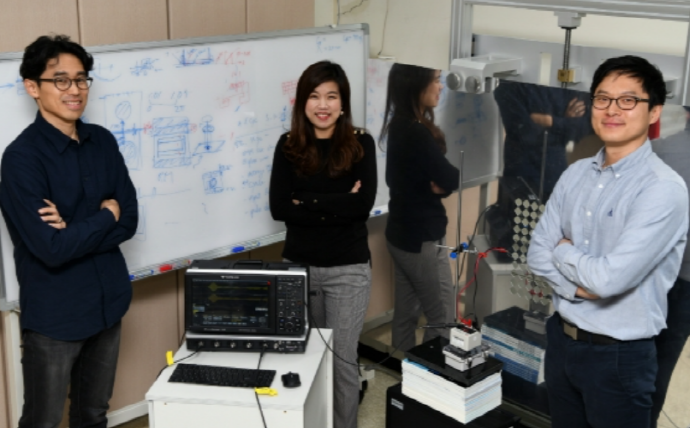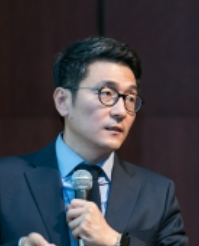Department News
[Newsworks] Prof. Byeng Dong Youn Develops New Material with 22 Times Higher Efficiency of Energy Harvesting

Energy loss occurs anywhere and anytime. We lose more than half of electric energy when it is first produced. No matter how high the energy efficiency is, energy is lost in the form of heat, light, or vibration.
‘Energy harvesting,’ which harvests lost energy and turns it into electronic energy, is used as a way to provide power for IoT and wearable electronics.
A Korean research team succeeded in producing higher electric power by applying metamaterials to energy harvesting.
Dr. Miso Kim of the Korean Research Institute of Standards and Science (KRISS) and SNU Prof. Byeng Dong Youn’s team succeeded in developing a ‘meta energy harvesting’ system by using metamaterials that have properties not found in natural materials.
The metamaterial in this system works like a magnifying glass, concentrating the energy in one place, which in turn produces electric energy that is 22 times more powerful.
Mechanical energy such as sound, vibration, and ultrasound is a great source for energy harvesting. Even noise and vibration from cars passing by can become a source of electric power.
Mechanical energy harvesting is limited in its applications due to low energy production and is not economical. Converting devices such as piezoelectric elements need to be installed in all the places where energy is produced, which causes problems in terms of cost and effectiveness.
The research team broke away from traditional methods. Instead, they focused on collecting the lost energy as much as possible then harvesting it.
They developed a phononic crystal structure, a type of metamaterial which can focus energy at an optimized rate, and applied it to harvesting.
This metamaterial collects energy input from various places in one location and prevents it from escaping. The research team used metamaterial to collect energy input and conducted energy harvesting with piezoelectric elements. They were able to produce electric power with 22 times higher efficiency.
Meta energy harvesting is especially useful in providing power for IoT sensors, which connect the infrastructure of a smart city like a network.
IoT sensors required regular battery replacements or relied on photovoltaic energy. But with this technology, they can be provided with a stable, consistent source of electric power from mechanical energy.
“Let’s say we have an IoT sensor that performs diagnostics on structures that are not easily accessible, like skyscrapers or bridges. If that sensor stops working due to power shortage, it can be extremely dangerous,” explained Prof. Byeng Dong Youn. “This technology provides a stable supply of electric power by using metamaterial to amplify the energy produced from the structure itself, like vibration.”
Dr. Miso Kim commented that “this is the first successful case of getting mW-level power, which can operate elements like sensors, by applying metamaterial to energy harvesting. This is a new paradigm in energy harvesting.”
The research was published in Nano Energy. It was funded by Creative Convergence Research Project of the National Research Council of Science and Technology. 
(From left to right) Dr. Wonjae Choi, Miso Kim, and Choon-su Park from KRISS Center for Safety Measurement. 
Prof. Byeng Dong Youn
Written by Byeong-do Moon
Link to article: http://www.newsworks.co.kr/news/articleView.html?idxno=343285

